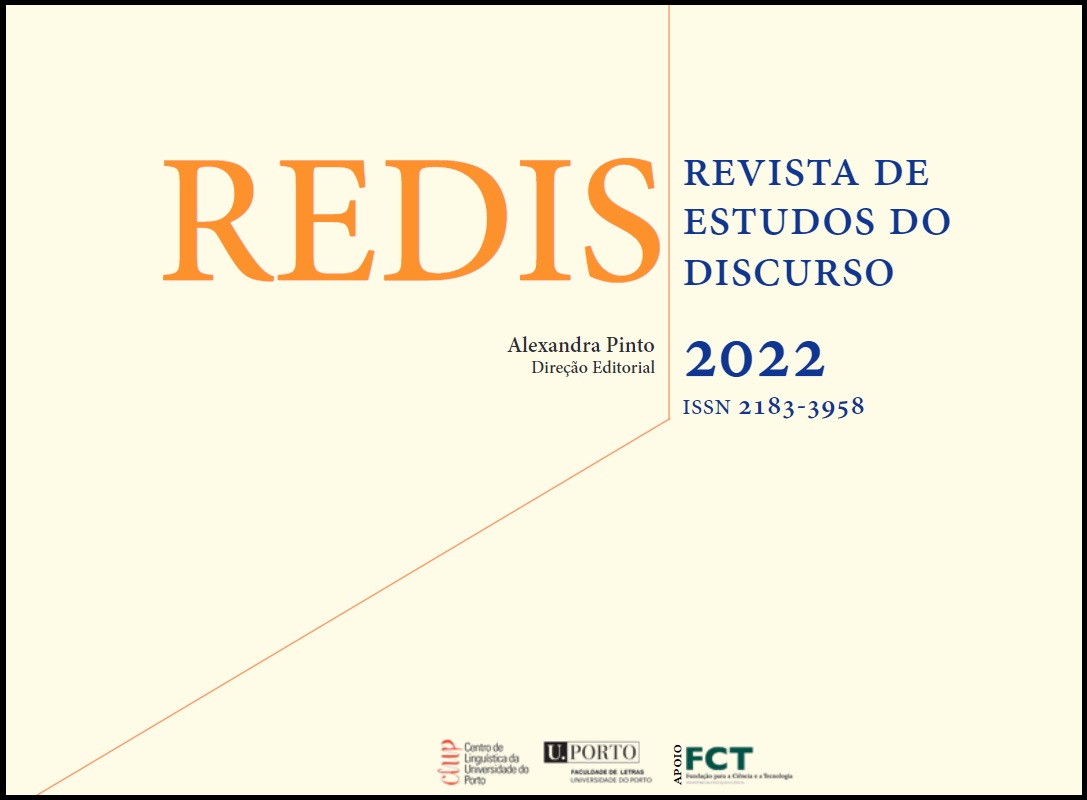Vernacular languages and cultural identity in Portuguese-speaking Mozambican Literature: the meeting of voices between Paulina Chiziane and Mia Couto
DOI:
https://doi.org/10.21747/21833958/red11a1Keywords:
Mozambican literature, Interdiscursivity, Cultural identityAbstract
Some Mozambican novels, written in Portuguese, bring with them a vocabulary of Mozambican vernacular languages, developed in the novel and translated in a final wordlist. The wordlist highlights the background that these Mozambican languages lend to Portuguese in communication, despite their “marginalization” in this country where official communication is reserved for standard Portuguese language, and it is part of what makes Mozambican this literature of Portuguese language. Despite its rich linguistic and literary content, the study of the wordlist, as part of the novel, has not yet attracted the attention of Mozambique’s literary and linguistic critics. It is necessary to understand the lexical field used and the communication situations in which these languages are used in that literature, if there are some Mozambican sociocultural realities that the Portuguese language does not effectively transmit, making the use of vernacular languages impera-tive. This work is based on these question and its corpus is the wordlist of the novels Ventos do apocalipse by Paulina Chiziane and O outro pé da sereia by Mia Couto. It is bibliographical research as conceived by Fonseca (2002) whose analysis uses some theories, such as Charaudeau (2002) on the relationship between cultural identity, language and discourse.
References
Ba Ka Khosa, U. (1990). Ualalapi. Lisboa: Caminho.
Charaudeau, P. (2001). Langue, Discours et Identité culturelle. https://www.cairn.info/revue-ela--2001-3-page-341.htm
Charaudeau, P. (2002). L’identité culturelle entre langue et discours. Revue de didactologie des lan-gues-cultures et de lexiculturologie ÉLA. Études de linguistique appliquée, 24(1), 341-348. doi: http://doi.org/10.3917/ ela.123.0341.
Chiziane, P. (1999). Ventos do apocalipse. Lisboa: Caminho.
Siopa, C. Marques, J. A, Monteiro, A. C & Serra, P. (2019). Lingua e Literacia(s) no século XXI Textos Seleccionados das 9.as Jornadas da Lingua Portuguesa. Porto: Porto Editora.
Couto, M. (2006). O Outro Pé da Sereia. Lisboa: Editorial Caminho.
Ferrão, I. (2004). Amar sobre um leito de preconceitos. Maputo: Ndjira.
Firmino, G. (2006). A «QUESTÃO LINGUÍSTICA» NA ÁFRICA PÓS-COLONIAL o caso do Português e das línguas Autóctones em Moçambique. Maputo: Texto Editores.
Fonseca, J. J. (2002). Metodologia da pesquisa científica. Fortaleza: UEC, Apostila.
Gouanvic, J.-M. (2013, 09 30). Les enjeux de la traduction dans le champ littéraire. Palimpsestes, 95-106. http://journals.openedition.org/palimpsestes/1531.
MINED. (2018). Manual de Línguas Moçambicanas Formação de Professores do Ensino Primário Educação de Adultos. Maputo: INDE.
Momplé, L. (1995). Neighbours. Maputo: Associação dos Escritores Moçambicanos.
Muianga, A. (2012). Nghamula, o homem do tchova (ou o eclipse de um cidadão). Maputo: Alcance.
Oranges, C. S. (2017). O texto literário como corpus para análise lexical: “O Púcaro Búlgaro”, de Campos de Carvalho. Revista de Estudos Linguísticos, 46(1), 213-225. doi: http://doi.org/10.21165/el.v46i1.1568.
Orsi, V. (2012). Lexicologia: o que há por trás do estudo das palavras? . In A. V. Gonçalves; M. L. Góis & V. Orsi. Ciências da Linguagem: o fazer científico? (pp. 163-177). Campinas: Mercado de Letra.
Ponso, L. C. (2014). As línguas não ocupam espaço dentro de nós: práticas, atitudes e identidades linguísticas entre jovens moçambicanos plurilíngues. Niterói: Instituto de Letras, Universidade Federal Fluminense.
Rocher, G. (1995). Culture, civilisation et idéologie. In G. Rocher, Introduction à la sociologie (pp. 101-127). Montréal: Hurtubise HMH.
Romanelli, S. (2009). Processo de criação em literatura e tradução literária e intersemiótica. Lisboa: Editora Horizonte.
Timbane, A. A. & Vicente, J. G. (2017). O plurilinguismo em Moçambique: debates e caminhos por uma educaçao linguistica inovadora. Revista Internacional em Língua Portuguesa (31), 91-112.
Downloads
Published
How to Cite
Issue
Section
License
Copyright (c) 2022 Redis: Revista de Estudos do discurso

This work is licensed under a Creative Commons Attribution 4.0 International License.
The authors give to REDIS. Revista de Estudos do Discurso the exclusive right to publish its texts, in any medium, including their reproduction and sale in paper or digital format, as well as their availability in a free access regime in databases.
















